Juneteenth celebrates the day in 1865 when enslaved people in Galveston, Texas, became aware of the Emancipation Proclamation and the freedom that came with that executive order. In observance of this important historic event, the DEI committee has compiled a list of eBooks available for checkout through the USF Library. These selected titles offer a range of historical and cultural analyses of abolition, emancipation, slave experiences, the Civil War, and more.
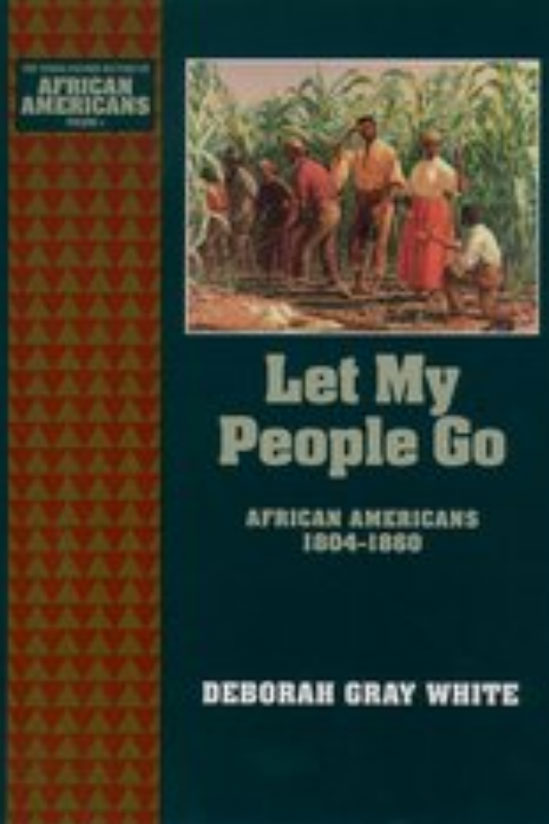
Let My People Go: African Americans 1804-1860
Deborah Gray White
From Oxford University Press: “In 1800, black voices began to rise against slavery. People like Gabriel Prosser and Nat Turner, attempted to launch slave rebellions against the system. Others, such as Maria Stewart and Frederick Douglass wrote books, pamphlets, and speeches calling for the abolition of slavery in the “land of the free.” The voices of abolitionists, both black and white, helped end slavery in the Northern states during the early 19th century.
But Southern plantation owners were unwilling to yield easily. The industrial revolution made the market for cotton better than ever. Inventor Eli Whitney’s cotton gin could easily remove the seeds from cotton bolls a slow and tedious chore slaves had to do by hand and plantation owners were able to grow even more cotton with fewer hands. They were not about to give up their slaves without a fight. So–African Americans struggled to be free and remain free as slaveholders fought to keep the system alive and profitable.
Let My People Go explores what slavery was like for men, women, and children in white homes and plantations, but it also shows how slaves created communities under bondage, how they fought back, and how they contributed to the system’s decline. Even in rare “free” communities, the central goal of free African Americans, beyond their very survival as a people, was to fight for the complete abolition of slavery. This sense of brotherhood, of community, speeded slavery’s demise and still guides African American history today. Let My People Go is a testament to the commitment and courage of those early communities.”
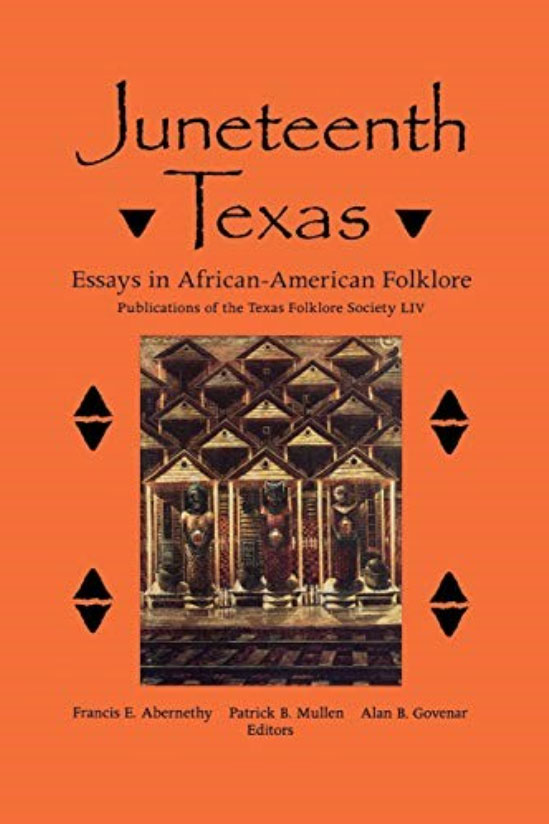
Juneteenth Texas
Francis Abernethy
From UNT Press: “Juneteenth Texas explores African-American folkways and traditions from both African-American and white perspectives. Included are descriptions and classifications of different aspects of African-American folk culture in Texas; explorations of songs and stories and specific performers such as Lightnin’ Hopkins, Manse Lipscomb, and Bongo Joe; and a section giving resources for the further study of African-Americans in Texas.”
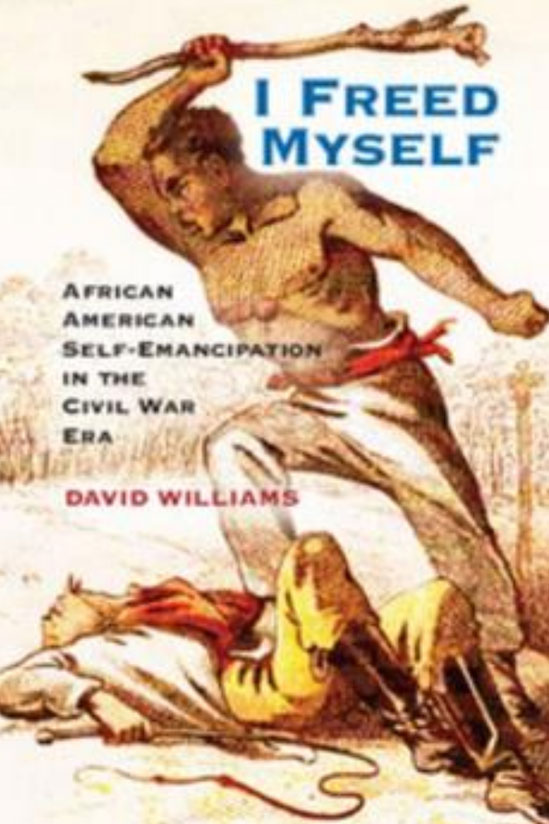
I Freed Myself: African American Self-Emancipation in the Civil War Era
David Williams
From Cambridge University Press: “For a century and a half, Abraham Lincoln’s signing of the Emancipation Proclamation has been the dominant narrative of African American freedom in the Civil War era. However, David Williams suggests that this portrayal marginalizes the role that African American slaves played in freeing themselves. At the Civil War’s outset, Lincoln made clear his intent was to save the Union rather than free slaves – despite his personal distaste for slavery, he claimed no authority to interfere with the institution. By the second year of the war, though, when the Union army was in desperate need of black support, former slaves who escaped to Union lines struck a bargain: they would fight for the Union only if they were granted their freedom. Williams importantly demonstrates that freedom was not simply the absence of slavery but rather a dynamic process enacted by self-emancipated African American refugees, which compelled Lincoln to modify his war aims and place black freedom at the center of his wartime policies.”
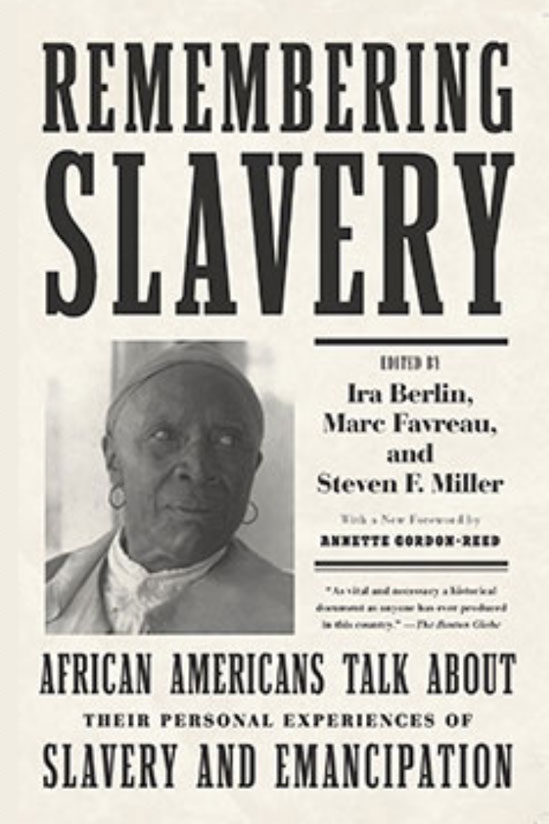
Remembering Slavery: African Americans Talk About Their Personal Experiences of Slavery and Emancipation
Steven F. Miller (ed.); Marc Favreau (ed.); Ira Berlin (ed.)
From the New Press: “With the publication of the 1619 Project and the national reckoning over racial inequality, the story of slavery has gripped America’s imagination—and conscience—once again.
No group of people better understood the power of slavery’s legacies than the last generation of American people who had lived as slaves. Little-known before the first publication of Remembering Slavery over two decades ago, their memories were recorded on paper, and in some cases on primitive recording devices, by WPA workers in the 1930s. A major publishing event, Remembering Slavery captured these extraordinary voices in a single volume for the first time, presenting them as an unprecedented, first-person history of slavery in America.”
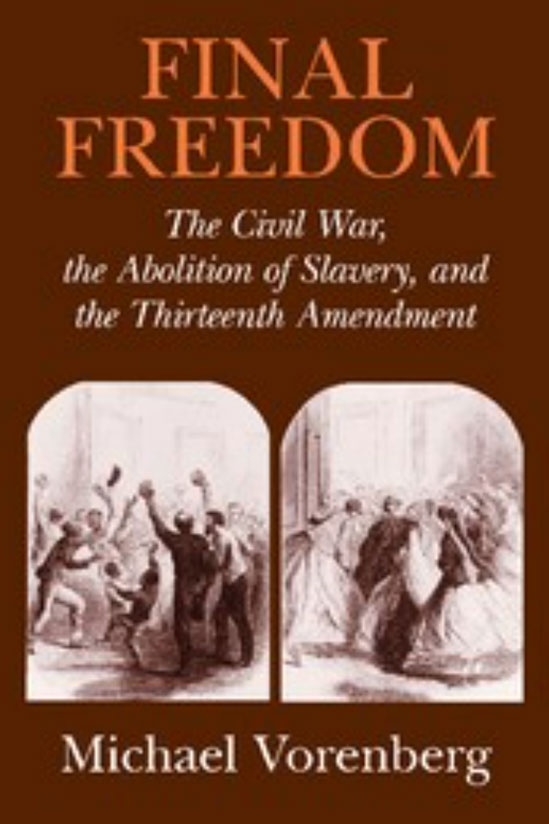
Final Freedom: The Civil War, the Abolition of Slavery, and the Thirteenth Amendment
Michael Vorenberg
From Cambridge University Press: “This book examines emancipation after the Emancipation Proclamation of 1863. Focusing on the making and meaning of the Thirteenth Amendment, Final Freedom looks at the struggle among legal thinkers, politicians, and ordinary Americans in the North and the border states to find a way to abolish slavery that would overcome the inadequacies of the Emancipation Proclamation. The book tells the dramatic story of the creation of a constitutional amendment and reveals an unprecedented transformation in American race relations, politics, and constitutional thought. Using a wide array of archival and published sources, Professor Vorenberg argues that the crucial consideration of emancipation occurred after, not before, the Emancipation Proclamation; that the debate over final freedom was shaped by a level of volatility in party politics underestimated by prior historians; and that the abolition of slavery by constitutional amendment represented a novel method of reform that transformed attitudes toward the Constitution.”
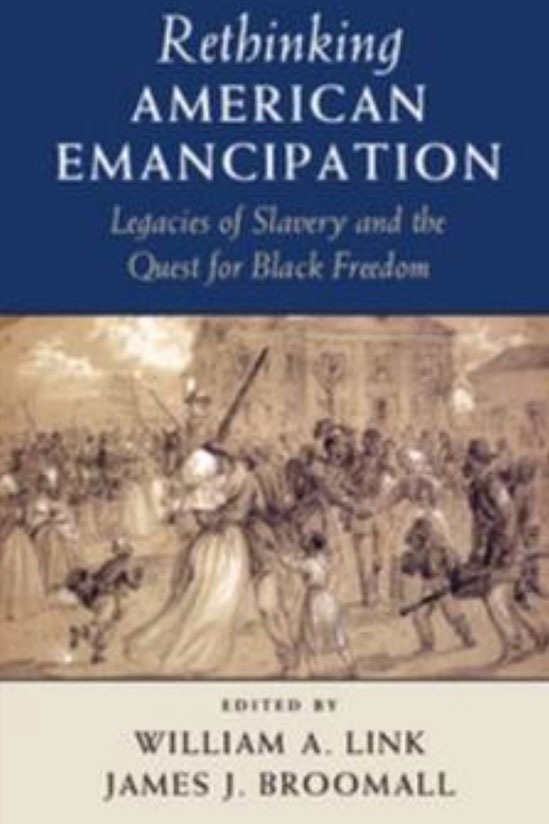
Rethinking American Emancipation: Legacies of Slavery and the Quest for Black Freedom
William A. Link (ed.); James J. Broomall (ed.)
From Cambridge University Press: “On January 1, 1863, Abraham Lincoln announced the Emancipation Proclamation, an event that soon became a bold statement of presidential power, a dramatic shift in the rationale for fighting the Civil War, and a promise of future freedom for four million enslaved Americans. But the document marked only a beginning; freedom’s future was anything but certain. Thereafter, the significance of both the Proclamation and of emancipation assumed new and diverse meanings, as African Americans explored freedom and the nation attempted to rebuild itself. Despite the sweeping power of Lincoln’s Proclamation, struggle, rather than freedom, defined emancipation’s broader legacy. The nine essays in this volume unpack the long history and varied meanings of the emancipation of American slaves. Together, the contributions argue that 1863 did not mark an end point or a mission accomplished in black freedom; rather, it initiated the beginning of an ongoing, contested process.”
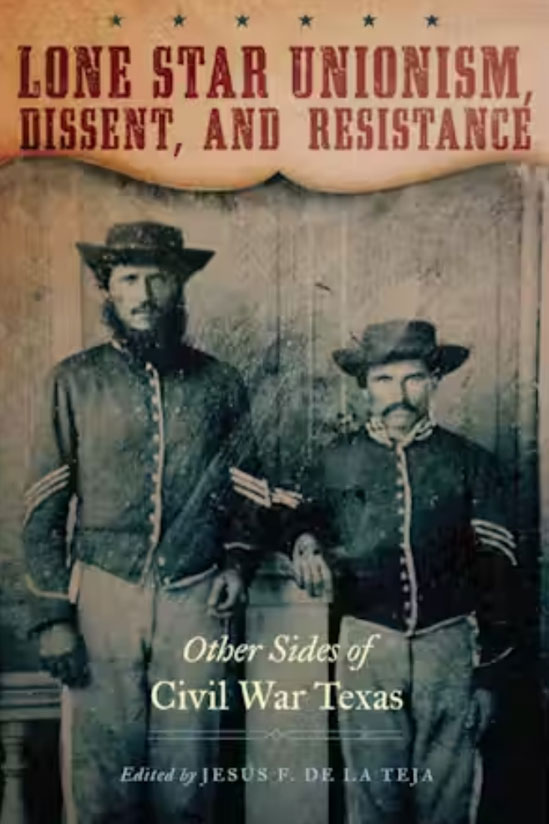
Lone Star Unionism, Dissent, and Resistance: Other sides of Civil War Texas
Jesús F. De La Teja (ed.)
From the University of Oklahoma Press: “Most histories of Civil War Texas—some starring the fabled Hood’s Brigade, Terry’s Texas Rangers, or one or another military figure—depict the Lone Star State as having joined the Confederacy as a matter of course and as having later emerged from the war relatively unscathed. Yet as the contributors to this volume amply demonstrate, the often neglected stories of Texas Unionists and dissenters paint a far more complicated picture. Ranging in time from the late 1850s to the end of Reconstruction, Lone Star Unionism, Dissent, and Resistance restores a missing layer of complexity to the history of Civil War Texas.
Concluding with an account of the origins of Juneteenth—the nationally celebrated holiday marking June 19, 1865, when emancipation was announced in Texas—Lone Star Unionism, Dissent, and Resistance challenges the collective historical memory of Civil War Texas and its place in both the Confederacy and the United States. It provides material for a fresh narrative, one including people on the margins of history and dispelling the myth of a monolithically Confederate Texas.”